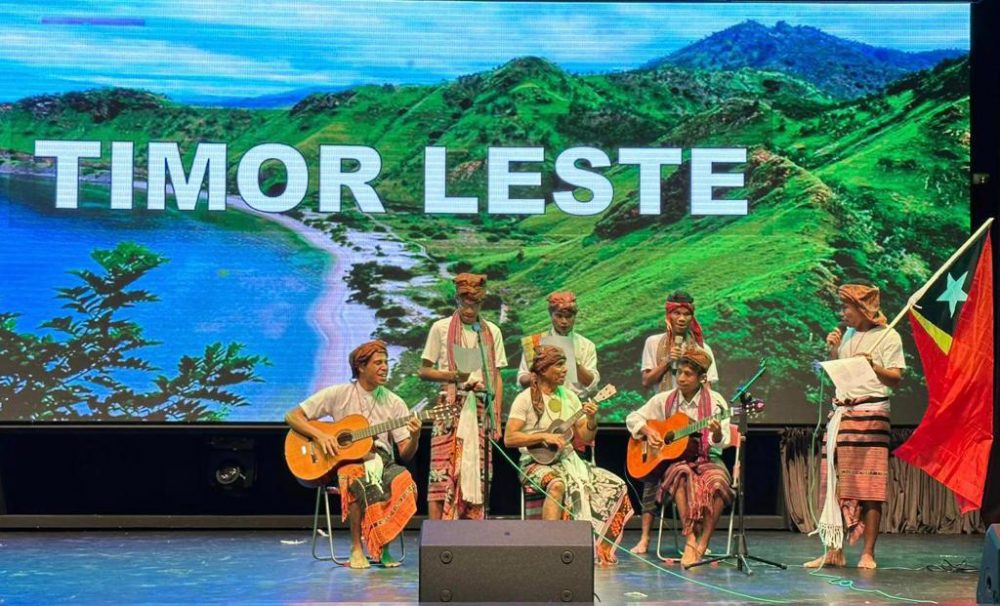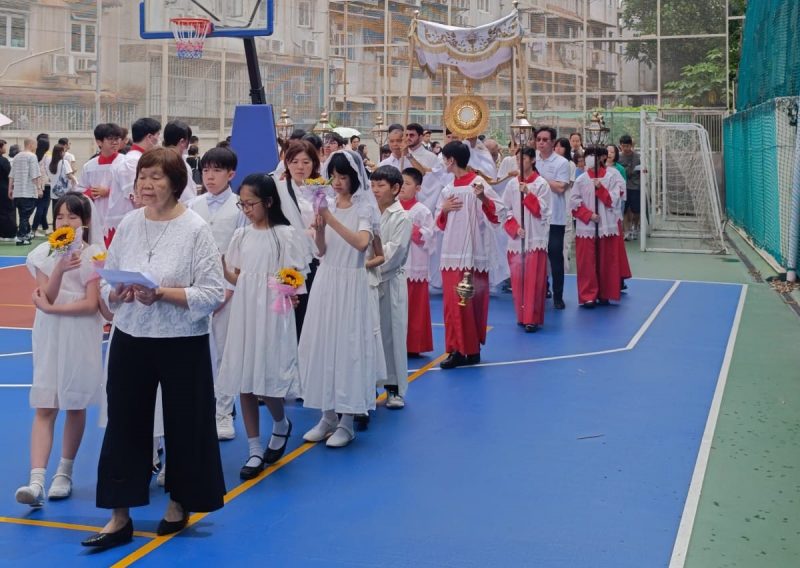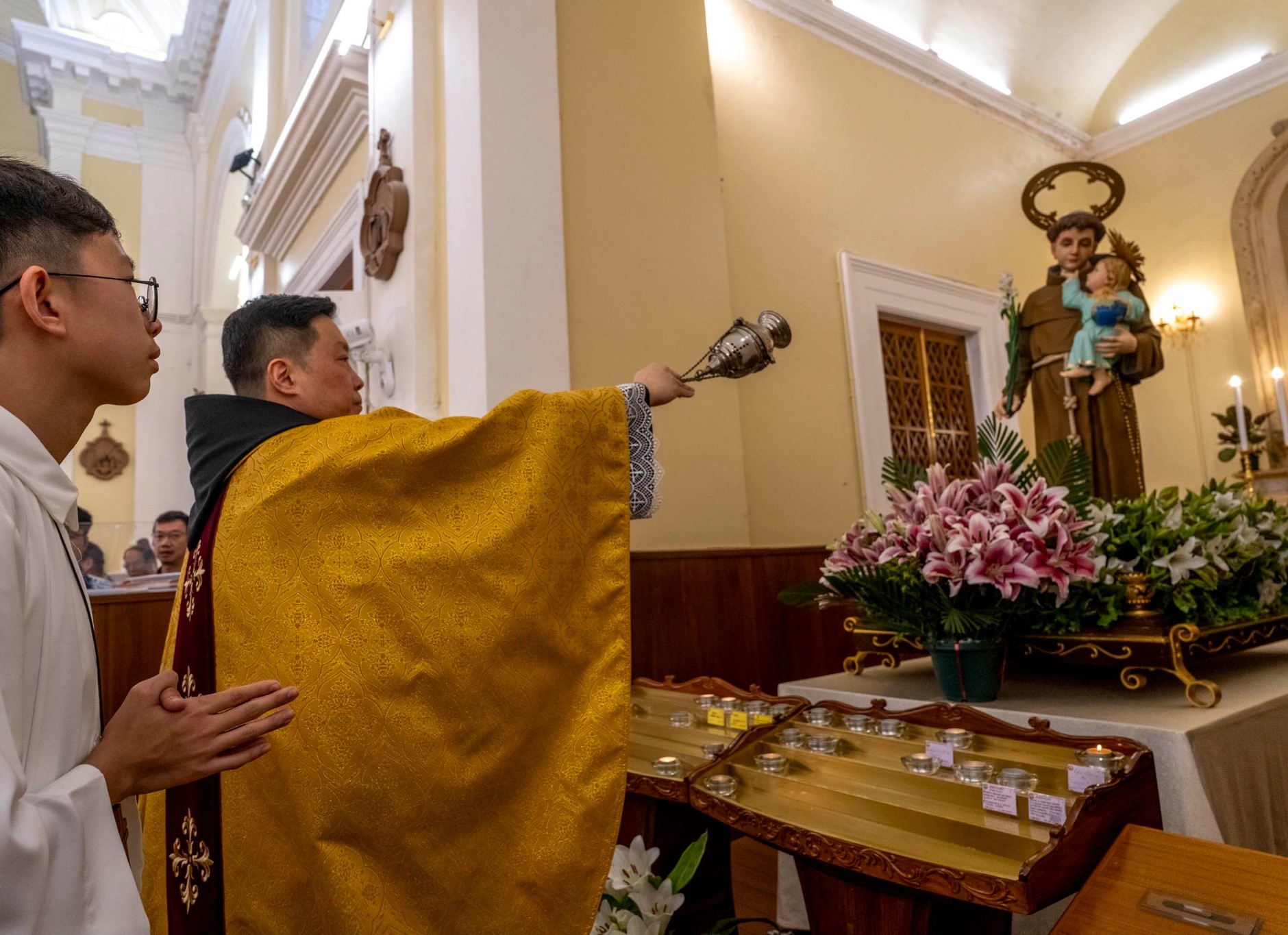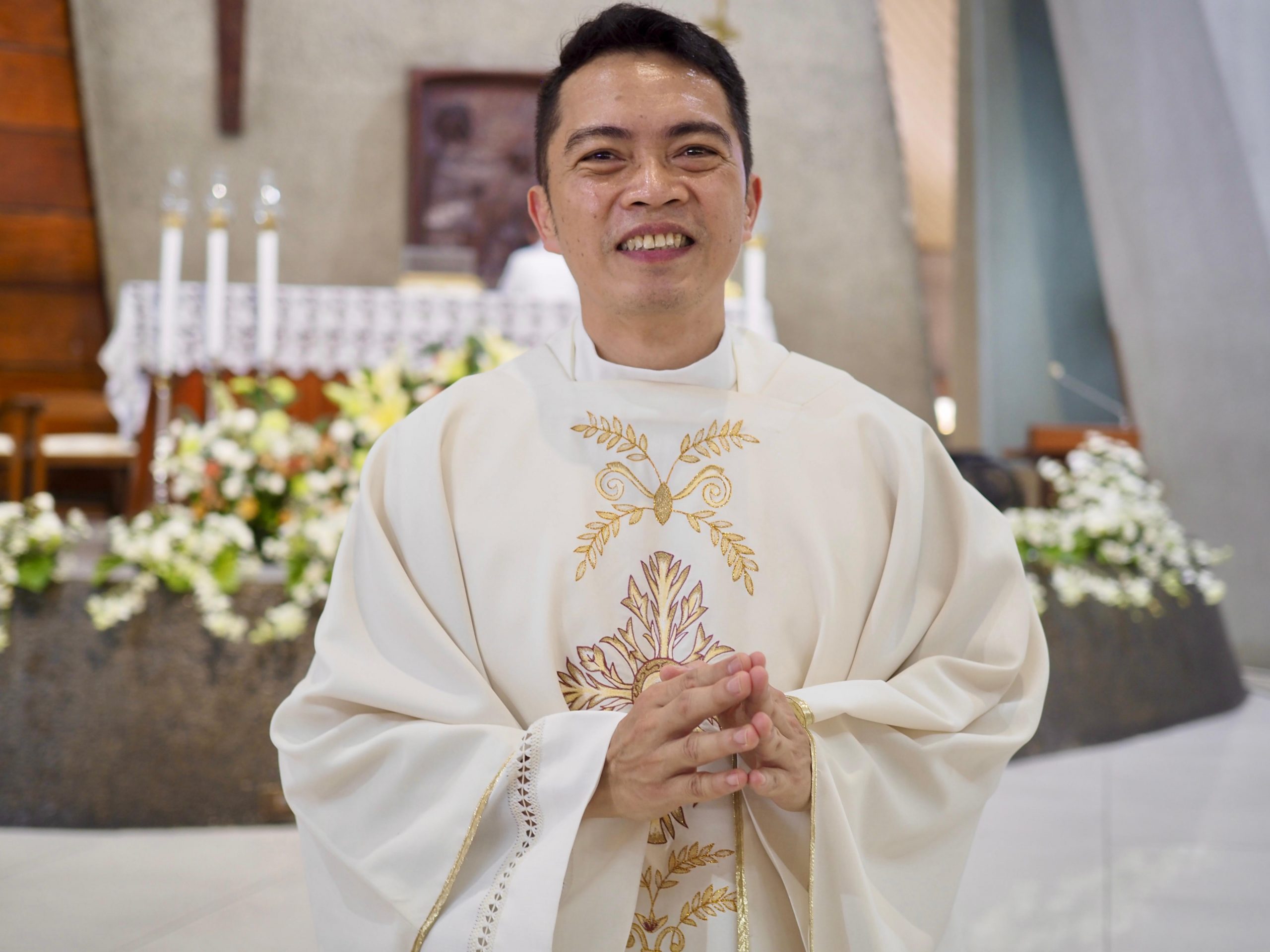Marco Carvalho
Over eight hundred migrant workers, hailing from nations as far as the Philippines, Indonesia, Vietnam, Myanmar or East Timor joined celebrations of the 109th World Day of Migrants and Refugees on September 24.
A Eucharist, presided over by Bishop Stephen Lee Bun-sang, was held at the auditorium of Saint Paul School. The Mass was followed by a reception and cultural soiree with ethnic food served from many of the cultures present, as well as performances by cultural choirs and dancers, keen on showcasing their customs and traditions.
“Bishop Stephen Lee celebrated Mass at 11am. According to our records, more than eight hundred people of different nationalities attended this Eucharist. Most of them were Filipino nationals, but migrant workers from Vietnam, Indonesia, Myanmar and East-Timor – as well as other communities currently working in Macau – also partake in the celebration,” Father Raymund Gaspar, head of the Catholic Pastoral Center told O Clarim.
The World Day of Migrants and Refugees, first observed by the Catholic Church in 1914, was once again commemorated in Macau after a long, four-year hiatus, ascribable to the Covid-19 pandemic. As well as showcasing the universality and vibrancy of the local Church, the celebration takes a humanized look at the contribution that migrant workers make to Macau’s economy and social diversity. The event also provides an opportunity for communities and peoples with very different traditions and cultural backgrounds to come around and join together. “The last time this celebration was organized was in 2019. Back then, the event brought together around 700 immigrants. Then Covid-19 took over the planet. This was the first time in three years that we were given the opportunity to celebrate together,” Father Gaspar remarked.
“We made cultural performances a part of the program because we realized there’s one thing all migrants have in common: they love their origins and their culture. When they leave their country to work in other places, they feel particularly proud to make their origins and the richness of their culture known, whether through songs or dance. We were quite surprised by the commitment shown by the Myanmar community. We asked them to prepare a small cultural performance and they prepared not one, but three and all of them very different,” the Filipino priest added.
In addition to Bishop Stephen Lee, the Consul General of the Philippines in Macau, Porfirio M. Mayo Jr, former legislator Agnes Lam and the Secretary-general of Caritas Macau, Paul Pun Chi Meng, also took part in the event. The strong adherence to the initiative, Father Gaspar claims, is a sign that the Covid-19 pandemic has surely contributed to bring people closer to God.
“The pandemic, I believe, helped people to turn more willingly to God. People were asking Him not to get sick or not to lose their jobs, especially because many were left without work, as we well know. Even now, that the pandemic seems to be a thing of the past, many are still looking for jobs and they need God’s help to do so. With the challenges that the pandemic brought, many began to show a greater willingness and availability to go to Church. This is a normal phenomenon for migrants, in particular for Filipinos, who come from a Catholic country,” the head of the Catholic Pastoral Centre concludes.
The Church teaches that we all have a right to a life of dignity, replete with basic human needs like food, shelter, medical attention and dignified work.


 Follow
Follow


